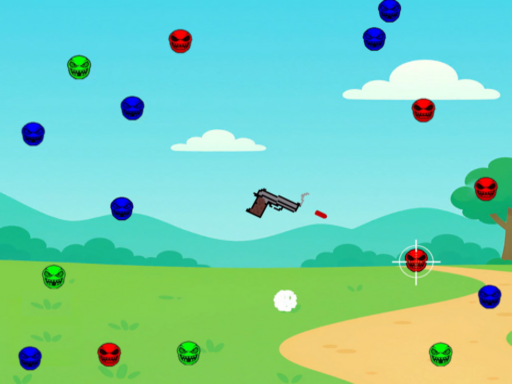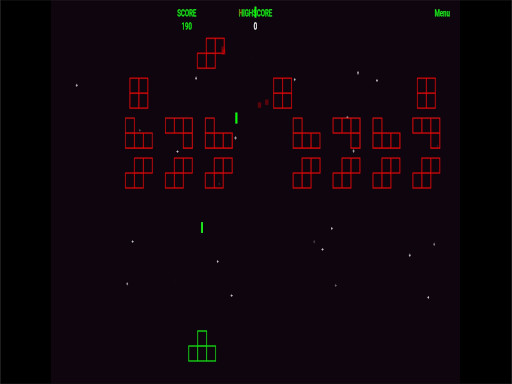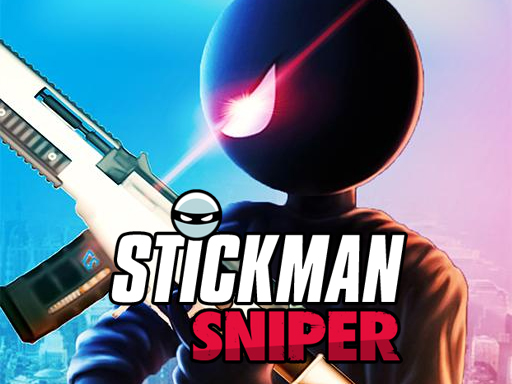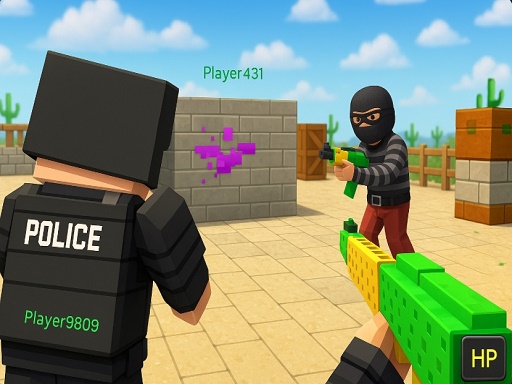Operazione: Mindfall Protocol
About Operazione: Mindfall Protocol
Dude, you are *not* going to believe what I just stumbled upon. Seriously, forget everything you thought you knew about shooters, because Operazione: Mindfall Protocol just dropped into my life like a meteor made of pure, unadulterated adrenaline and I haven't been able to think about anything else. I’m talking about a game that makes you lean forward in your chair so hard you practically fuse with your screen, a game that makes your heart pound in your chest like you’ve just run a marathon, and then rewards you with that sweet, sweet hit of satisfaction when you pull off something you didn't even think was possible. It’s got that perfect blend of chaos and precision, and honestly, I haven't been this genuinely excited about a new game in ages.
You know how sometimes you pick up a game, and it just *clicks*? Like, from the first second, you’re just immersed, and the hours melt away? That’s Mindfall Protocol. It throws you right into the deep end, no gentle tutorials, no hand-holding. One minute you’re looking at a loading screen, the next you’re in this absolutely gorgeous, but utterly terrifying, digital landscape, and there’s this voice, this calm, almost ethereal presence, that just cuts through the noise. That’s Tung Tung. And honestly, Tung Tung isn’t just some quest giver; she’s your lifeline. She’s this AI, or maybe a fragment of something larger, that’s guiding you through what feels like a collapsing reality. The stakes feel incredibly high, right from the jump. You’re not just fighting for yourself; you’re fighting to keep this fragile connection, this *protocol*, from falling apart.
And man, the enemies. They are *everywhere*. I’m not exaggerating. You step into a new area, and it’s like the very fabric of this digital world is trying to tear you apart. These aren’t just generic bad guys; they’re these corrupted data entities, shards of code given malevolent form, and they come at you from all angles. You’ll be clearing a corridor, feeling pretty good about yourself, and then suddenly, the floor beneath you will shimmer, and a new wave will just *spawn* out of the ether. It keeps you on your toes in a way few games manage. What I love about games like this is that they demand your full attention, every single second. There’s no room for complacency. You’ve got to be constantly moving, constantly scanning your environment, because if you stand still for even a moment, you’re toast. The sheer density of enemies means that every engagement feels like a desperate struggle for survival, and that, my friend, is where the magic happens.
The brilliant thing about this is that it forces you to be incredibly careful, but not in a slow, methodical way. It’s a carefulness born of rapid decision-making. Do I push forward and risk getting flanked, or do I fall back to that cover I just passed? Is that enemy worth the ammo, or can I conserve for the bigger threat I know is coming? You’re constantly weighing options, and the game just *sings* when you manage to string together a perfect sequence – a quick dodge, a burst of fire that takes out three enemies, a slide into cover just as a massive energy blast scorches the ground where you were standing. You can almost feel the heat from those blasts, the impact of your shots. The sound design, too, is just phenomenal. The *thwip* of your energy rifle, the guttural screams of the corrupted entities as they shatter into pixels, the low hum of the environment that constantly reminds you of the digital decay around you. It all just pulls you deeper into the experience.
But it’s not just about endless shooting, which, don’t get me wrong, is incredibly satisfying. There’s a whole layer of exploration and resource management that just elevates it. As you’re fighting your way through these crumbling data structures and fractured memoryscapes, Tung Tung will often chime in, a soft voice in your ear, guiding you, "Warrior, there are caches nearby. Critical data fragments." These are the chests. They’re not always obvious, sometimes tucked away behind a destructible wall, or up on a ledge you need to find a tricky jump to reach. And when you finally locate one, there’s this satisfying little *ping* as it opens, revealing a shower of credits, or "neural currency" as the game calls it. It feels like you’re salvaging pieces of a forgotten world, and that’s genuinely exciting.
And then there’s the money dropped by enemies. Every enemy you destroy, every corrupted shard you shatter, leaves behind a trail of these shimmering neural credits. It creates this fantastic incentive loop: the more aggressive you are, the more risks you take, the more enemies you defeat, the more resources you gain. It makes every combat encounter feel meaningful beyond just survival. You’re not just clearing a path; you’re actively harvesting the remnants of the fallen to fuel your own progression. Gathering that money isn't just a chore; it’s an integral part of the flow, a visual representation of your progress and success in battle. You find yourself instinctively sweeping over areas after a fight, just to make sure you didn’t miss a single shimmering credit.
The real magic happens when you complete a level. It’s not just a "level complete" screen; it’s a moment of respite, a chance to breathe, and then the game hits you with the next challenge. Because, and this is where the strategy really kicks in, in each subsequent level, you face stronger enemies. And I don't mean just more health. I mean new enemy types with completely different attack patterns, new environmental hazards that force you to rethink your approach, and sometimes, just absolutely brutal combinations of existing enemies that will make you sweat. You’ll encounter these hulking data-golems that soak up damage, or agile, almost ghost-like entities that phase in and out of existence, forcing you to time your shots perfectly. This makes you even *more* careful, because a single mistake against these guys can be fatal.
This escalating difficulty is what makes the progression so incredibly rewarding. You’re constantly being pushed to adapt, to improve your reflexes, to master your current arsenal. And that’s where saving up your money comes in. Because when you finally accumulate enough neural currency, you get to visit the armory. And oh man, the armory. It’s not just a menu; it’s this almost sacred space where you get to decide how you’re going to tackle the next wave of challenges. You can buy different weapons, each with its own feel, its own tactical advantages. Do you go for a high-damage, slow-firing plasma cannon that can punch through armored enemies but leaves you vulnerable during reloads? Or maybe a rapid-fire, spread-shot submachine gun that’s great for crowd control but less effective against single, tough targets? Or perhaps you invest in a precision laser rifle that demands accuracy but rewards headshots with devastating critical damage?
There’s something truly special about that moment when you’ve been struggling with a particular enemy type, you save up your credits, buy that new weapon you’ve been eyeing, and then go back into the fray feeling genuinely more powerful. The satisfaction of melting through an enemy that gave you so much trouble before, all because you made a smart investment, is just… chef’s kiss. It’s not just about bigger numbers; it’s about changing your playstyle, experimenting with new tactics. I’ve always been drawn to games that give you meaningful choices in how you approach combat, and Mindfall Protocol absolutely nails it. You can almost feel the weight and power of each new weapon in your hands, the way it changes the rhythm of combat.
Honestly, the entire experience is just a masterclass in pacing and reward. You’re constantly fighting, constantly moving, constantly collecting, and then you get that moment of relief and strategic choice before diving back into the beautiful, chaotic storm. It’s a loop that just keeps pulling you in, level after level. You find yourself wondering, "What new horrors will they throw at me next? What incredible weapon can I unlock to deal with it?" The curiosity alone is enough to keep you hooked. In my experience, the best moments come when you’re utterly overwhelmed, down to your last sliver of health, and you manage to clutch it out, barely escaping with your life, only to find a hidden chest right around the corner that gives you just enough credits to buy that upgrade you needed. That feeling of going from despair to triumph in a matter of seconds, that’s what this game delivers in spades.
You know that feeling when you're so absorbed in a game that you lose track of time? That's Operazione: Mindfall Protocol. It’s not just a shooting game; it’s an experience. It’s a test of your reflexes, your tactical thinking, and your ability to adapt under pressure. And it’s incredibly rewarding. I’m telling you, you need to check this out. I’ve got a feeling once you start, you won’t be able to put it down. Let me know what you think, because I’m just itching to talk about it more once you’ve experienced the pure, unadulterated joy of helping Tung Tung save what’s left of this digital mindscape. Seriously, grab your controller, you won't regret it.
You know how sometimes you pick up a game, and it just *clicks*? Like, from the first second, you’re just immersed, and the hours melt away? That’s Mindfall Protocol. It throws you right into the deep end, no gentle tutorials, no hand-holding. One minute you’re looking at a loading screen, the next you’re in this absolutely gorgeous, but utterly terrifying, digital landscape, and there’s this voice, this calm, almost ethereal presence, that just cuts through the noise. That’s Tung Tung. And honestly, Tung Tung isn’t just some quest giver; she’s your lifeline. She’s this AI, or maybe a fragment of something larger, that’s guiding you through what feels like a collapsing reality. The stakes feel incredibly high, right from the jump. You’re not just fighting for yourself; you’re fighting to keep this fragile connection, this *protocol*, from falling apart.
And man, the enemies. They are *everywhere*. I’m not exaggerating. You step into a new area, and it’s like the very fabric of this digital world is trying to tear you apart. These aren’t just generic bad guys; they’re these corrupted data entities, shards of code given malevolent form, and they come at you from all angles. You’ll be clearing a corridor, feeling pretty good about yourself, and then suddenly, the floor beneath you will shimmer, and a new wave will just *spawn* out of the ether. It keeps you on your toes in a way few games manage. What I love about games like this is that they demand your full attention, every single second. There’s no room for complacency. You’ve got to be constantly moving, constantly scanning your environment, because if you stand still for even a moment, you’re toast. The sheer density of enemies means that every engagement feels like a desperate struggle for survival, and that, my friend, is where the magic happens.
The brilliant thing about this is that it forces you to be incredibly careful, but not in a slow, methodical way. It’s a carefulness born of rapid decision-making. Do I push forward and risk getting flanked, or do I fall back to that cover I just passed? Is that enemy worth the ammo, or can I conserve for the bigger threat I know is coming? You’re constantly weighing options, and the game just *sings* when you manage to string together a perfect sequence – a quick dodge, a burst of fire that takes out three enemies, a slide into cover just as a massive energy blast scorches the ground where you were standing. You can almost feel the heat from those blasts, the impact of your shots. The sound design, too, is just phenomenal. The *thwip* of your energy rifle, the guttural screams of the corrupted entities as they shatter into pixels, the low hum of the environment that constantly reminds you of the digital decay around you. It all just pulls you deeper into the experience.
But it’s not just about endless shooting, which, don’t get me wrong, is incredibly satisfying. There’s a whole layer of exploration and resource management that just elevates it. As you’re fighting your way through these crumbling data structures and fractured memoryscapes, Tung Tung will often chime in, a soft voice in your ear, guiding you, "Warrior, there are caches nearby. Critical data fragments." These are the chests. They’re not always obvious, sometimes tucked away behind a destructible wall, or up on a ledge you need to find a tricky jump to reach. And when you finally locate one, there’s this satisfying little *ping* as it opens, revealing a shower of credits, or "neural currency" as the game calls it. It feels like you’re salvaging pieces of a forgotten world, and that’s genuinely exciting.
And then there’s the money dropped by enemies. Every enemy you destroy, every corrupted shard you shatter, leaves behind a trail of these shimmering neural credits. It creates this fantastic incentive loop: the more aggressive you are, the more risks you take, the more enemies you defeat, the more resources you gain. It makes every combat encounter feel meaningful beyond just survival. You’re not just clearing a path; you’re actively harvesting the remnants of the fallen to fuel your own progression. Gathering that money isn't just a chore; it’s an integral part of the flow, a visual representation of your progress and success in battle. You find yourself instinctively sweeping over areas after a fight, just to make sure you didn’t miss a single shimmering credit.
The real magic happens when you complete a level. It’s not just a "level complete" screen; it’s a moment of respite, a chance to breathe, and then the game hits you with the next challenge. Because, and this is where the strategy really kicks in, in each subsequent level, you face stronger enemies. And I don't mean just more health. I mean new enemy types with completely different attack patterns, new environmental hazards that force you to rethink your approach, and sometimes, just absolutely brutal combinations of existing enemies that will make you sweat. You’ll encounter these hulking data-golems that soak up damage, or agile, almost ghost-like entities that phase in and out of existence, forcing you to time your shots perfectly. This makes you even *more* careful, because a single mistake against these guys can be fatal.
This escalating difficulty is what makes the progression so incredibly rewarding. You’re constantly being pushed to adapt, to improve your reflexes, to master your current arsenal. And that’s where saving up your money comes in. Because when you finally accumulate enough neural currency, you get to visit the armory. And oh man, the armory. It’s not just a menu; it’s this almost sacred space where you get to decide how you’re going to tackle the next wave of challenges. You can buy different weapons, each with its own feel, its own tactical advantages. Do you go for a high-damage, slow-firing plasma cannon that can punch through armored enemies but leaves you vulnerable during reloads? Or maybe a rapid-fire, spread-shot submachine gun that’s great for crowd control but less effective against single, tough targets? Or perhaps you invest in a precision laser rifle that demands accuracy but rewards headshots with devastating critical damage?
There’s something truly special about that moment when you’ve been struggling with a particular enemy type, you save up your credits, buy that new weapon you’ve been eyeing, and then go back into the fray feeling genuinely more powerful. The satisfaction of melting through an enemy that gave you so much trouble before, all because you made a smart investment, is just… chef’s kiss. It’s not just about bigger numbers; it’s about changing your playstyle, experimenting with new tactics. I’ve always been drawn to games that give you meaningful choices in how you approach combat, and Mindfall Protocol absolutely nails it. You can almost feel the weight and power of each new weapon in your hands, the way it changes the rhythm of combat.
Honestly, the entire experience is just a masterclass in pacing and reward. You’re constantly fighting, constantly moving, constantly collecting, and then you get that moment of relief and strategic choice before diving back into the beautiful, chaotic storm. It’s a loop that just keeps pulling you in, level after level. You find yourself wondering, "What new horrors will they throw at me next? What incredible weapon can I unlock to deal with it?" The curiosity alone is enough to keep you hooked. In my experience, the best moments come when you’re utterly overwhelmed, down to your last sliver of health, and you manage to clutch it out, barely escaping with your life, only to find a hidden chest right around the corner that gives you just enough credits to buy that upgrade you needed. That feeling of going from despair to triumph in a matter of seconds, that’s what this game delivers in spades.
You know that feeling when you're so absorbed in a game that you lose track of time? That's Operazione: Mindfall Protocol. It’s not just a shooting game; it’s an experience. It’s a test of your reflexes, your tactical thinking, and your ability to adapt under pressure. And it’s incredibly rewarding. I’m telling you, you need to check this out. I’ve got a feeling once you start, you won’t be able to put it down. Let me know what you think, because I’m just itching to talk about it more once you’ve experienced the pure, unadulterated joy of helping Tung Tung save what’s left of this digital mindscape. Seriously, grab your controller, you won't regret it.
Enjoy playing Operazione: Mindfall Protocol online for free on Qotori games. This Shooting game offers amazing gameplay and stunning graphics. No downloads required, play directly in your browser!
How to Play
Use the WASD keys to move Use the mouse to shoot Eliminate all enemies and collect all the gold to move to the next level 4 different game modes with 4 different difficulty levels rdquo





Comments
This game is awesome! I love the graphics and gameplay.
One of the best games I've played recently. Highly recommended!